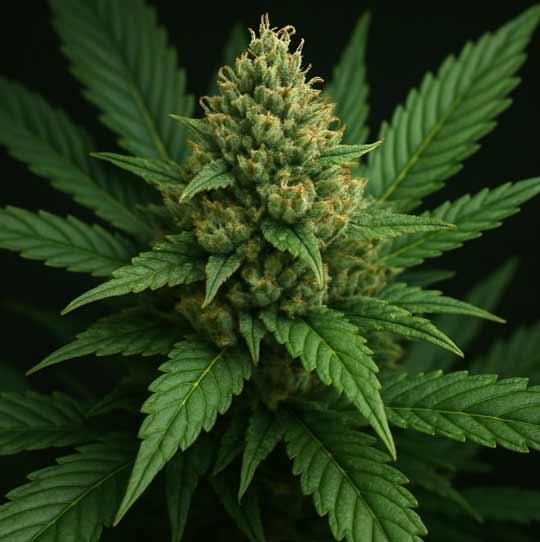Understanding Autoimmune Disorders
Autoimmune disorders are complex and often chronic conditions. They emerge when the body's immune system mistakenly targets its own cells as threats. This misguided attack can cause widespread damage.
There are over 80 types of autoimmune diseases. These include not only rheumatoid arthritis and lupus but also type 1 diabetes and Hashimoto's thyroiditis. Each condition affects different parts of the body.
Common symptoms of autoimmune disorders are varied. They often include fatigue, joint pain, swelling, and skin issues. These symptoms can significantly impact a person's quality of life.

Managing these conditions is challenging. Treatments usually aim to reduce inflammation and suppress immune responses. Options often include medications like steroids and immunosuppressants, which can have harsh side effects.
Common Autoimmune Disorders
- Rheumatoid arthritis
- Lupus
- Multiple sclerosis
- Type 1 diabetes
- Crohn's disease
Understanding these disorders is crucial for finding effective treatments. As research progresses, new options like medical marijuana are being considered. Exploring alternative therapies may offer new hope for patients.
The Science Behind Medical Marijuana
Medical marijuana has been a topic of interest in science. It involves compounds like THC and CBD, known for their therapeutic potential. These compounds interact with the body's endocannabinoid system.
This system plays a crucial role in regulating physiological processes. These processes include managing pain, inflammation, and immune functions. Understanding this interaction is key to comprehending how cannabis might affect health.
THC is the psychoactive component of cannabis. It binds to cannabinoid receptors in the brain and immune system. CBD, on the other hand, is known for its non-psychoactive properties and immune-modulating effects.
Key Compounds in Cannabis:
- THC (Tetrahydrocannabinol): Psychoactive, affects pain and appetite
- CBD (Cannabidiol): Non-psychoactive, known for potential anti-inflammatory properties
Research is ongoing to explore these interactions more deeply. Scientists aim to unlock how these compounds can support health, particularly in autoimmune disorders. The potential is vast, but much remains to be understood.
How Cannabis May Impact Inflammation and the Immune System
Cannabis is attracting attention for its potential impact on inflammation. Many autoimmune disorders are linked to chronic inflammation. Autoimmune conditions often cause the immune system to overreact, attacking healthy tissues.
Cannabinoids like THC and CBD might help regulate this response. They are believed to modulate immune functions. This modulation can potentially reduce inflammation.

The endocannabinoid system is integral in these interactions. By influencing it, cannabis might help normalize the body's inflammatory responses. This could lead to better management of autoimmune symptoms.
Cannabinoid Effects:
- THC: May alter immune system response
- CBD: Possesses anti-inflammatory effects
- Endocannabinoid System: Central to immune modulation
Still, comprehensive studies are required to validate these effects. The complexity of the immune system demands careful research. Understanding the relationship between cannabis and inflammation remains a promising area. Current evidence suggests a potential for symptom relief and improved quality of life. However, the full scope of these benefits needs further exploration through meticulous research.
Medical Cannabis Benefits for Autoimmune Disease Treatment
Medical cannabis is gaining recognition for its potential benefits in treating autoimmune diseases. Patients report varying degrees of symptom relief. Cannabis might offer a natural alternative to traditional medications.
Autoimmune diseases often involve chronic pain and inflammation. Cannabis may help manage these symptoms effectively. THC and CBD are the main compounds providing therapeutic effects.

With fewer side effects than some pharmaceuticals, cannabis presents an attractive option. Patients have noted improvements in their quality of life. Some describe experiencing less pain and better sleep patterns.
Potential Benefits:
- Pain Relief: Helps manage chronic pain
- Reduced Inflammation: Alleviates inflammatory symptoms
- Improved Sleep: Enhances sleep quality
Despite promising reports, cannabis is not a standalone cure. It works best when integrated into a comprehensive treatment plan. Lifestyle changes and traditional therapies often complement its use.
Research on these benefits is still evolving. More clinical trials are needed to validate patient experiences. Cannabis could significantly contribute to the multifaceted management of autoimmune disorders. It's vital for patients and providers to understand its role within the broader spectrum of care.
Current Medical Marijuana Research and Evidence
Research on medical marijuana and autoimmune disorders is emerging. Scientists are intrigued by cannabis's potential to modulate the immune system. THC and CBD interact with the endocannabinoid system, influencing immune responses.
Most studies focus on small patient groups or animal models. This limits the generalizability of findings. Yet, initial results are promising and warrant further exploration.
Key Research Areas:
- Endocannabinoid System: How it impacts immune function
- THC and CBD: Their effects on inflammation
- Clinical Trials: Ongoing studies assessing efficacy
Some studies indicate cannabis may reduce reliance on opioids for pain management. Additionally, patients report fewer flares and improved daily living. The possibility of reduced inflammation presents a significant advantage.
Patient Experiences and Real-World Outcomes
Patient experiences with medical marijuana vary widely. Some report remarkable improvements in quality of life. Others find it less effective for their symptoms.
Many patients notice reduced inflammation and pain relief. This can lead to increased mobility and reduced medication needs. For some, cannabis offers a way to manage anxiety and improve sleep.
Common Patient Testimonials:
- Enhanced mood and mental clarity
- Fewer autoimmune flares
- Better sleep quality
- Reduced dependency on painkillers
However, not all patient stories are positive. Some experience side effects such as dizziness and dry mouth. Patients stress the importance of strain selection and dosing precision.
Real-world outcomes underscore the personalized nature of cannabis treatment. While some thrive, others see limited benefits. Working closely with healthcare providers can optimize treatment plans and enhance outcomes. As research progresses, patient education remains crucial for informed decision-making.
Considerations: Safety, Side Effects, and Legal Status
When considering medical marijuana for autoimmune disorders, safety is paramount. Side effects can vary among patients but are generally mild. Common issues include dizziness, dry mouth, and changes in appetite.
Careful dosing is crucial to minimize these effects. Patients often find starting with low doses is the safest approach. Monitoring and adjusting dosages under medical supervision is advised.
Potential Side Effects:
- Dry mouth
- Dizziness
- Altered appetite
- Mood changes

Healthcare providers play a critical role in guiding patients through the legal and therapeutic landscape. Open communication ensures both safety and efficacy in treatment plans. Understanding legal constraints and potential side effects allows patients to navigate their options confidently. Advocating for more research and consistent regulations could enhance patient access and awareness.
Integrating Medical Marijuana Into Autoimmune Disease Management
Incorporating medical marijuana into autoimmune disease management requires a personalized approach. Each patient presents unique needs and responses to cannabis therapy. A holistic plan, combining cannabis with traditional treatments, can be beneficial.
Collaboration between patients and healthcare providers is essential for optimizing outcomes. Such collaboration ensures that treatment plans are aligned with patient goals and medical guidance. Regular assessments help fine-tune cannabis dosages and strains used
Steps for Integrating Medical Marijuana:
- Consult with a knowledgeable healthcare provider
- Start with low doses and adjust as needed
- Regularly evaluate and monitor symptoms
- Combine with other therapies for holistic care
Patient education plays a crucial role in successful integration. Understanding how cannabis interacts with autoimmune treatments enhances patient engagement. It's also vital for ensuring safety and achieving desired health benefits.
The Future of Cannabis and Autoimmune Disease Treatment
The future of cannabis in autoimmune treatment is promising yet requires further exploration. Ongoing research aims to unlock the complexities of cannabis's effects on the immune system. As scientific studies progress, they may provide new insights into cannabis’s role in autoimmune care.
Advancements in cannabis research could lead to more targeted therapies. These therapies might effectively address specific autoimmune conditions. Meanwhile, innovations in cannabis formulations will improve patient outcomes by offering tailored treatment options.
Changes in legal regulations could also impact accessibility and research opportunities. As the stigma surrounding cannabis decreases, more patients may seek its potential benefits. Increased public acceptance may drive further investigation and innovation in this field.
The expansion of research will likely improve our understanding of cannabis's therapeutic potential. Collaborative efforts between scientists and clinicians will be vital. Such efforts ensure that future treatments are both safe and effective.
The Future of Cannabis and Autoimmune Disease Treatment
The future of cannabis in autoimmune treatment is promising yet requires further exploration. Ongoing research aims to unlock the complexities of cannabis's effects on the immune system. As scientific studies progress, they may provide new insights into cannabis’s role in autoimmune care.
Advancements in cannabis research could lead to more targeted therapies. These therapies might effectively address specific autoimmune conditions. Meanwhile, innovations in cannabis formulations will improve patient outcomes by offering tailored treatment options.
Changes in legal regulations could also impact accessibility and research opportunities. As the stigma surrounding cannabis decreases, more patients may seek its potential benefits. Increased public acceptance may drive further investigation and innovation in this field.
The expansion of research will likely improve our understanding of cannabis's therapeutic potential. Collaborative efforts between scientists and clinicians will be vital. Such efforts ensure that future treatments are both safe and effective.
























